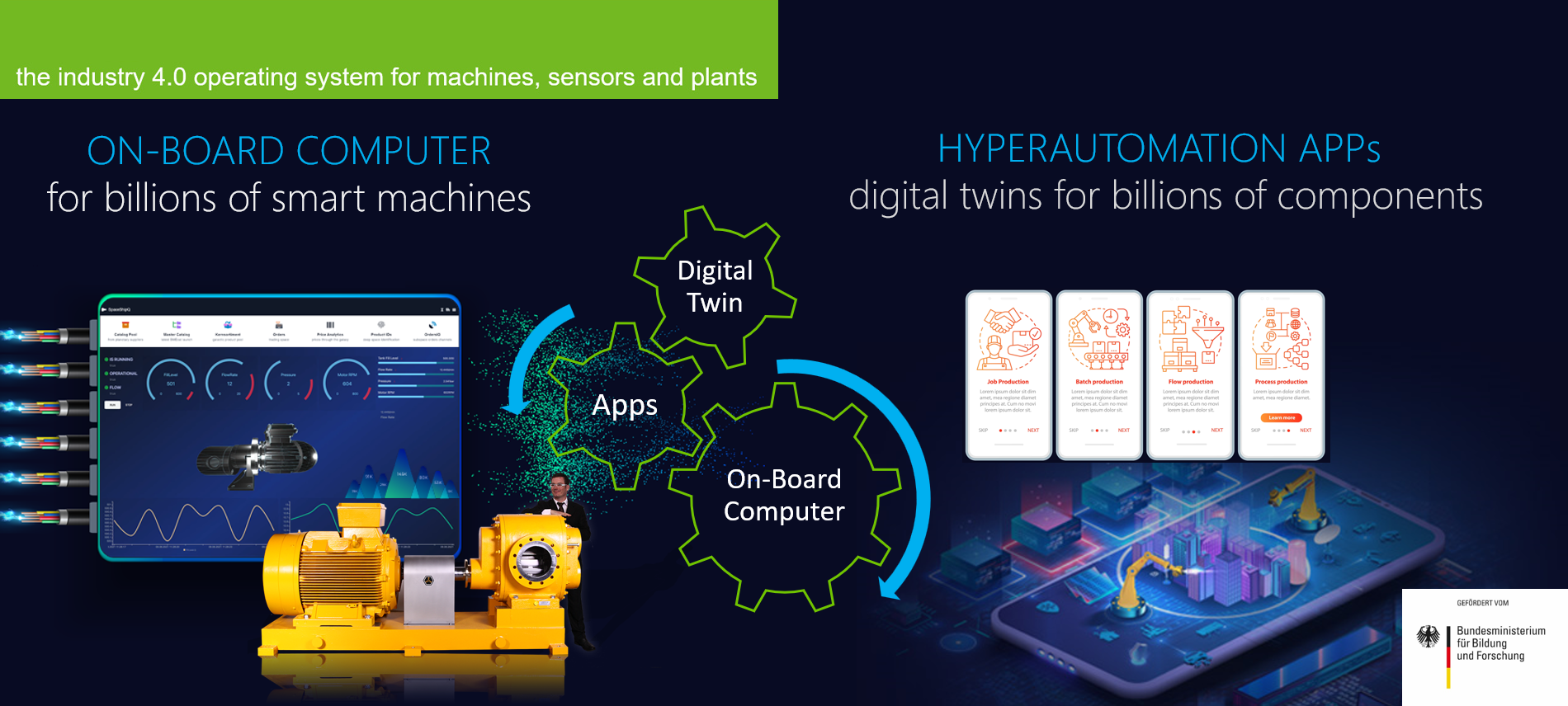
Runtime for smart machines
the Machine Runtime is the realisation of the industry 4.0 component
Apps and digital twin in one platform
The digital platform uniquely solves a problem that many suppliers of industrial goods
are
currently facing: Industrial companies make use of a multitude of devices and machines in their
production, all of which are supposed to provide and exchange data as part of process
digitization.
However, these individual machines are difficult to integrate with third-party software. They
deliver
and exchange data in non-standard semantics. Technical data and CAD models are also distributed
across a
wide variety of systems. The user is faced with the complex challenge of harmonizing and merging
this
data in order to maintain an overview of his production.
The platform solves this issue through a novel concept in mechanical engineering: Similar
to
smartphones, apps are offered on the platform with which current functionalities and smart
algorithms
can be quickly integrated into the pump. Unlike smartphones, however, the innovative, open
platform
offers all APPs the same database, the digital twin of the pump, as well as the twins of your
components. This allows apps to interact, collaborate and complement each other. The open
architecture
and SDKs offered also make it possible to develop third-party apps for the pump or other
machines
quickly and with minimal effort. Adding components from different manufacturers and integrating
their
signals and data, such as sensors, motors or inverters, is also standardized and is done simply
by
docking the digital twin of the components to that of the pump.
Interoperability through the Digital Twin
Technologically, the applied Digital Twin is based on the Administration Shell (AAS), which is
standardized by the Industrie 4.0 platform and IDTA, which ensures interoperability with other
system.
The Module Type Package (MTP), which modularizes automation systems in the process industry, can
also be
integrated in the AAS. In addition to the management shell, the platform relies on other open
interfaces
based on the current industry standard, such as BaSys 4.2, OPC-UA, MQTT, IO-LINK and, in the
future,
the
language for I4.0 components according to VDI/VDE 2193.
This breakthrough permanently changes the way machines can acquire new capabilities. New
apps
and
functions can also be added during operation.